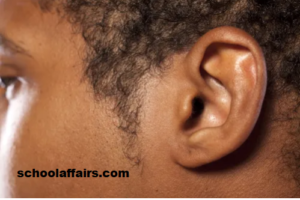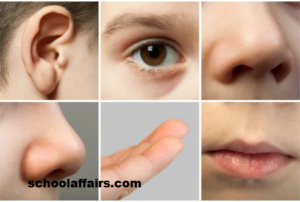37 Weird Facts About the Human Body – The Human Body is an amazing feature as it is home to every memory you’ve ever made, it’s the only permanent home you will ever really know. One of its unique function is to get you where you are going every day.
Whether you have super powers of flipping your eyelids inside out or have mastered the art of the tongue roll, there are a lot of weird facts about the human body that you are not aware of that will surely amaze you.
37 Amazing Things You Didn’t Know About Your Own Body
Wondering just what’s so amazing about your physical being? Read on to discover all of the remarkable feats you’re accomplishing every day without even realizing it.
-
You’ll have a brand-new skeleton in 10 years.

Your skeletal system’s cells are constantly regenerating and, on average, the bones you have now will have completely regenerated in about a decade’s time. This does start to slow down as you age, however, with regeneration taking longer, causing bones to naturally become thinner.
-
You’re taller in the morning than you are at night.
It might seem like a tall tale, but when you wake up in the morning, you’re actually a tiny bit taller than you were when you went to bed. This is due to the pressure put on joints throughout the day.
As you go about your activities, this pressure causes the cartilage in your spine to compress—just fractions of an inch, but enough to push everything down. As you relax in your sleep, it eases the pressure on your spinal disks, thus allowing you to return to your full height.
-
Your sweat is actually odorless.

If you think sweat stinks, you wouldn’t be alone—but you would be incorrect. Sweat itself doesn’t smell. It’s the interaction with bacteria on your skin that causes body odor.
Don’t worry, this is perfectly normal. These bacteria occur naturally and just happen to thrive in the sweatiest regions of our body.
-
You have over 60,000 miles of blood vessels.
If it sounds overwhelming, that’s because it kind of is. While individual blood vessels are relatively small, the amount found within the average adult body tallies up in some pretty impressive ways. If laid out in a straight line, the entire network would stretch well over 60,000 miles. That’s including all arteries, capillaries, and veins, end-to-end.
-
Like lizards, we also shed our skin.
OK, so it’s not quite as intense as when it happens to a lizard or to a snake but it is just as creepy. According to the American Chemical Society, humans shed their entire outer layer of skin every two to four weeks. That’s about 500 million skin cells a day!
-
Babies don’t have kneecaps.

You’d think that our kneecaps would be a necessary part of the human body. Not for babies, who aren’t born with them. Instead, their cartilage gradually turns into bone, as ossification begins between the ages of two and six years and doesn’t fully finish until young adulthood.
-
Your stomach growls because it’s full of hot air.
Ever wonder why you experience those grumbly, growly sounds when hungry? It all circles back to the digestive system. More specifically, the intestines. These guys go through a series of contractions to help move food and liquid along when eating.
But even after all the food is digested, the intestines continue to move air through the digestive tract. That’s what causes “borborygmus,” the scientific name assigned to those funny little rumbles.
-
Your bones are stronger than steel.

While many of us experience a broken bone at some point in life, the fact is that bone is an incredibly tough substance. So strong, in fact, that, as Discover puts it, “ounce for ounce, our bones are stronger than steel.”
A bone has a greater pressure tolerance and bearing strength than a rod of steel of the same width. The strongest bone in the body is the femur, which can support 30 times the body weight of an average person.
-
Throughout your life, you will produce enough saliva to fill up two pools.
The average human produces over 20,000 liters of saliva throughout their lifetime. That’s enough to eventually fill up two swimming pools full of spit.
If you think that sounds like a long time, just remember: Rome wasn’t built in a day, either.
-
Your feet contain a quarter of your bones.
Human feet contain 52 bones (26 for each foot). That’s nearly a quarter of all the bones in your whole body! Each also contains 33 joints and more than 100 muscles, tendons, and ligaments. Are your dogs barking?
-
The smallest bone in your body is in your ear.

No named bone in your body is smaller (or lighter) than the stapes, a bone in the middle ear that’s actually shaped like a stirrup. It’s complete with a base and an oval window, which is covered with a membrane that measures sound vibrations.
-
You lose almost one-third of your bones as you age.
As it turns out, there are quite a few things you didn’t know about your body—including how many bones you have. According to the doctors over at the Cleveland Clinic, you’re born with about 300 bones, but as you grow, some fuse together as cartilage ossifies, eventually leaving you with 206 bones by the time you stop growing (once you’ve reached young adulthood).
-
There are no muscles in your fingers.
Your fingers do countless important things throughout the day, from opening jars to opening doors. But don’t chalk up those feats of strength to your fingers. Any movement that happens in your fingers is due to tendons and bones, with a lot of help from the muscles in the palms of your hands and at the base of each individual digit.
-
Half your hand strength is in your pinkie.

The pinkie seems unassuming, but it’s crucial for your hand strength—helping the thumb to pinch and giving more power to the ring, middle, and index fingers.
Laurie Rogers, hand therapist at National Rehabilitation Hospital in Washington, told The New York Times that losing your pinkie would mean, “You’d lose 50 percent of your hand strength, easily.”
-
Your tongue is the only muscle that doesn’t join two bones.

Every muscle in the human body connects to bones at both ends, allowing it to pull and create motion, with one notable exception: your tongue. On one end, it’s connected to your hyoid bone—part of your neck—but nothing else on the other side.
-
Your rear is your largest muscle.
While there is some debate about which of your muscles is the strongest, your gluteus maximus happens to be your largest, according to the Library of Congress. These muscles help keep your body upright, move your hips and thighs, and work against gravity when you’re walking uphill or upstairs.
The fact that they make your jeans look great is just a bonus.
-
We’re as hairy per square inch as chimpanzees.
It turns out we’re just as hairy as chimps. According to a 2011 paper published in the International Journal of Trichology, we have the same number of hairs as chimps, even if the hair itself is much finer, making it harder to see and creating a lower volume of hair overall.
-
Roller coasters can “toss” your organs.

You know that sinking feeling you get when on a roller coaster? Turns out, it might be a little something more than the adrenalin. According to experts, these rides can achieve speeds fast enough to actually toss your internal organs around. We’re talking brain, heart, eyes, blood vessels, and more.
Don’t worry, the acceleration isn’t enough to do any harm (unless you have a preexisting condition). It’s just enough to leave you feeling a little queasy.
-
Hair can “taste.”
Here’s a fun human body fact: Your nasal passages and lungs are lined with fine hairs, or cilia, that detect and sweep out impurities. How do they detect it? By sensing the bitter tastes of the things passing through them (such as, say, nicotine).
When these hairs taste something bitter, they increase their rate of movement, attempting to sweep out the bad stuff, according to a 2009 study published by the American Association for the Advancement of Science.
-
Hair knows when you sleep.

One other crazy thing that hairs can do? Track your sleeping patterns. In 2010, researchers at Yamaguchi University found that our cell-rich hair follicles contain RNA from “clock genes” that express each person’s sleep-wake cycle.
If you get up late or go to bed early, your hair will show it.
-
Your hair helps the environment.
Dirty hair can be good for the atmosphere: According to a 2008 study published in Atmospheric Environment, hair absorbs the air pollutant ozone. Scalp oils were found to be a major contributor to this, so if you want to do your part to help your local air quality, skip the shampoo!
-
Human nails grow faster today than they used to.

If you feel like you have to trim your nails more than you used to, it’s not just your imagination. A 2010 study out of the University of North Carolina at Chapel Hill comparing the growth of fingernails and toenails to two previous studies from 70 and 50 years earlier found that growth had increased by almost a quarter over the decades.
For example, the big toe nail was found to grow by more than 2mm per month, compared to 1.65mm per month in the 1930s. The reason, according to researchers? The proliferation of protein-rich diets.
-
Your body position affects your memory.

That bad posture isn’t just giving you a backache—a 2012 article published in Biofeedback found that sitting and looking downward makes it easier to recall negative memories, while sitting upright and looking upward makes it easier to recall positive, empowering memories.
-
Humans “glow”—you just can’t see it.
When we talk about someone having a “glow” about them, that’s often literally true. Research has found that the human body does, in fact, emit visible light, but since it’s about 1,000 times less intense than the levels the human eye can spot, it’s not “visible” in practice.
The results of a 2009 study published in PLOS One reveal that this body glow rises and falls throughout the day, with the least glow coming off of the humans they tested at about 10 a.m., and the highest at about 4 p.m. (perhaps because they were about to wrap up work for the day).
-
A blink is a micro nap.
You probably thought that a blink was just something you did to keep your eyes moist or keep dust out of them. That is a very valuable service, of course, but we actually blink way more than needed for that alone—about 15 to 20 times per minute.
In fact, according to a 2012 study conducted by researchers at Washington University, blinking can help sharpen attention and provide our bodies time to recharge.
-
Big eyes cause nearsightedness.

Big eyes may be considered beautiful by some, but they can cause nearsightedness. Also known as myopia, this condition that causes distant objects to look blurry is caused by light not properly reaching the retina.
If your eyeball grows too long, light is focused too soon before it hits the retina—so when it does hit the retina, the image is blurry.
-
It’s impossible to tickle yourself.
Your cerebellum—the area in the back of your brain that monitors movement—predicts the sensation you will feel when you attempt to tickle yourself, countering the response that the tickle would otherwise elicit in other parts of your brain. Two distinct parts of the human brain are responsible for giving you that ticklish feeling: The somatosensory cortex and the anterior cingulate cortex.
As Sarah-Jayne Blakemore, a research fellow at the Institute of Cognitive Neuroscience at University College London, explained to Scientific American, “We found that both these regions are less active during self-tickling than they are during tickling performed by someone else, which helps to explain why it doesn’t feel tickly and pleasant when you tickle yourself.”
-
Stomach acid dissolves razor blades.

You probably shouldn’t be swallowing these things, but you might be surprised to learn that your stomach could do some serious damage on razor blades if you did.
Researchers out of Meridia Huron Hospital tested the effects of gastric juice on metal objects and found that over 24 hours, the stomach acid reduced razor blades to 63 percent of their original weight (pennies and batteries, however, were barely affected).
-
Your intestine is four times as long as you are.
Among the many things you probably didn’t know about your body is that your small intestine is about 18 to 23 feet long, meaning that, if you uncoiled it, it would stretch to almost four times your height.
-
Your gut has a “second brain.”
We’ve all felt that “butterflies in the stomach” sensation (say, before a first date or major presentation). There’s good reason for this: There’s a network of neurons that lines the gut, which some scientists have taken to referring to as our “second brain.”
The gut doesn’t just handle digestion, but comes with its own reflexes and senses, and is intricately and inextricably interwoven with your nervous system. So, yeah, trust your gut.
-
Sneezes can travel up to 20 feet.

You may think you’re safe when the guy all the way across the subway car sneezes, but you could be in the line of fire without even realizing it.
A video study conducted by researchers at MIT found that sneezes travel much farther than previously believed—as far as 20 feet.
-
Earwax is good for you.
To be clear, you don’t want to eat earwax! But that icky stuff serves the important purpose of lubricating, cleaning, and protecting your ears from infection. It’s as much as 50 percent fat, coating the ear and catching dust and debris—keeping your ears healthy, even if it looks gross.
-
Taste buds dull with age.

Wine may taste better as it ages, but as we age, it’s harder for us to appreciate it. Just as hearing and vision tend to deplete as the years go by, your sense of taste does the same. As you get older, your taste buds regenerate more slowly after injury or if you take certain medications.
And bad news for the ladies: Women generally experience a decrease in their taste sensitivity beginning in their 50s, while men don’t experience that until their 60s.
-
You have a one-of-a-kind tongue print.
Just as your fingerprint is uniquely yours, so too is your tongue print, according to a 2016 study by the Thai Moogambigai Dental College. Biometric scans can be done to compare the individual shape (long or short, wide or narrow) and texture (ridges, wrinkles, and marks), with specific details tracked and mapped by a “tongue image-acquiring device.”
Of course, while this thing you didn’t know about your body might be interesting, it probably is not very useful to forensic investigators.
-
Humans are the only animals that weep.

While many animals produce tears as lubricants for their eyes, humans are the only ones who cry as an emotional response.
Thomas Dixon, PhD, director of the Centre for the History of Emotions at Queen Mary, University of London, suggested that tears serve a social purpose for humans and that, “Even for those who think they really are just weeping for nobody apart from themselves, it’s still a sort of performance. You’re showing yourself things have really got bad, or whatever it might be.”
-
Your liver can almost completely regrow.
The liver is resilient. Even if reduced by as much as 75 percent, it can grow back to normal size. This happens through the rapid replication of liver cells, with the thing reaching its original size (or very close to it) within about a month, according to the University of Iowa.
-
Humans have more than five senses.

While we have sight, smell, touch, taste, and hearing, humans also have “proprioception” (sense of space) and “nociception” (sense of pain). There’s also “equilibrioception” (sense of balance), “thermoception” (sense of temperature in and around the body), “temporal perception” (sense of time), and more, depending on who you ask.
So, yeah, The Sixth Sense might need a new title.
Conclusion
That’s it for our list of weird facts about the human body, but be sure to check back in with us soon. We’ve got tons more material on health, wellness, and the world around us



